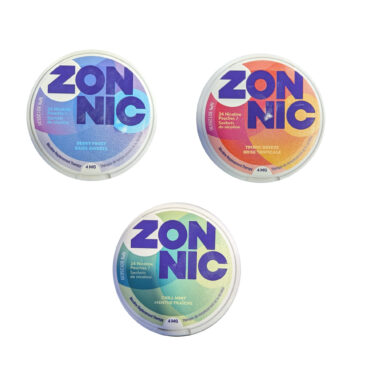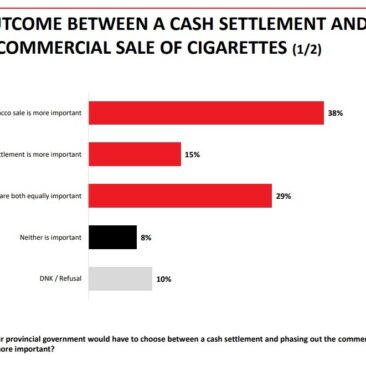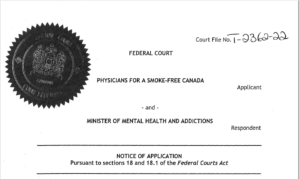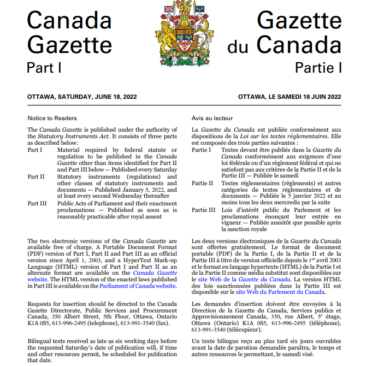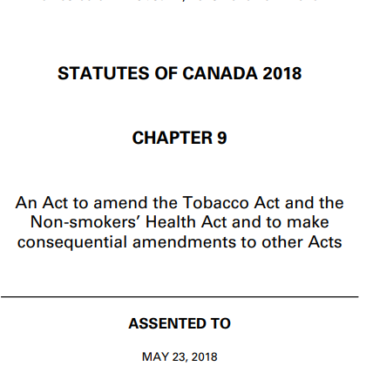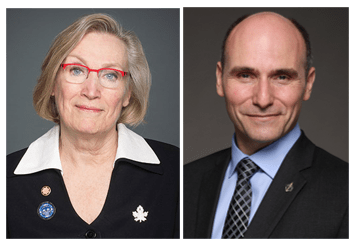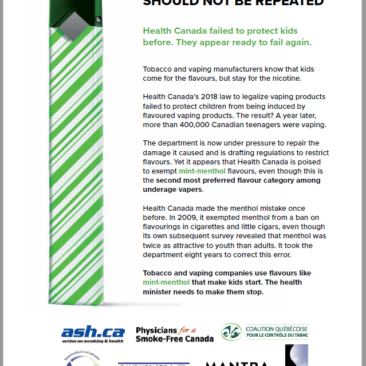Action on Smoking & Health
Coalition québécoise pour le contrôle du tabac
Physicians for a Smoke-Free Canada
A revised law is needed to flatten the curve on this new wave of nicotine addiction.
(Ottawa – Montreal – Edmonton) – On the second anniversary of the federal Tobacco and Vaping Products Act (TVPA) coming into force, tobacco control organizations are calling on the Health Minister and other Parliamentarians to acknowledge the dangerous flaws in the law and to act faster to strengthen national controls on the vaping market.
“Government officials said they would balance the need to protect young people from nicotine addiction against their desire to increase smokers’ access to vaping products. It is clear that they got that balance wrong,” said Neil Collishaw of Physicians for a Smoke-Free Canada. “Tens of thousands of young Canadians have been harmed by this law, with very little evidence of any benefit to the health of adult smokers.”
“The federal vaping law has not protected young people from tobacco industry marketing,” said Flory Doucas of the Quebec Coalition for Tobacco Control. “It has allowed vaping products to be sold in tens of thousands of convenience stores and gas stations, it has allowed them to be sold in exotic flavours, it has allowed them to be designed to be hidden from parents and teachers, it has allowed them to be made with the highest levels of fast-acting nicotine and it has allowed them to be sold at dirt-cheap prices.”
Surveys have consistently shown that the number of young Canadians using vaping products doubled following the passage of the TVPA. Health Canada’s own survey found that after the law came into effect an additional quarter of a million secondary students had tried vaping products and the number who were vaping daily increased by 140,000.
The groups note that to protect their young citizens from the impact of the federal law, provincial governments have passed laws to over-ride the marketing permissions in the TVPA. Most provinces now ban retail advertisements or displays. Nova Scotia has banned the sale of flavoured e-cigarettes and Prince Edward Island has removed them from corner stores and increased the minimum age to 21.
“Ottawa is off-loading to the provinces the responsibility to protect young people from tobacco companies,” said Les Hagen of Edmonton-based Action on Smoking & Health. “This is not fair to young people living in provinces that are unable or unwilling to replace federal responsibilities. And in a time where health systems are struggling to manage COVID-19, it is inefficient to ask for 13 provincial and territorial laws when one federal act will do. We urge the Federal government to take the advice of its Chief Medical Officer of Health by enacting strong measures to keep kids nicotine-free.”
Fourteen months ago the federal government signalled that it intended to clamp down on vaping marketing and 5 months ago it proposed regulations to do so, but to date few new restrictions have been put on vaping manufacturers. “The flaws in the federal vaping law cannot be entirely addressed by regulations – the federal regulatory system is too slow and the statutory permissions to manufacturers too broad,” said Ms. Doucas.
“Because of the numerous pre-regulatory requriements, it will be months or years before regulations could stop companies from candy-coating their addictive products or from engineering them to deliver the most addictive form of nicotine,” said Neil Collishaw. “Even then, such constraints will only be a band-aid fix. What is needed is for Health Canada to abandon its choice of harm reduction based on market competition and for it to adopt a strategy which prevents the expansion of nicotine addiction.”
“Every day this law is left unfixed, more children will become addicted.”

